When you’re looking to buy a Dachshund puppy, it’s easy to fall in love with their adorable faces and playful nature.
But it’s essential to look beyond the cuteness and watch for red flags that could indicate potential problems.
In this post, I’ll guide you through 12 Red Flags to Watch When Buying a Dachshund Puppy.
1️⃣ 🐾 Unreliable Breeders
🏚️ Poor Conditions
The first red flag is the condition of the breeder’s facility.
If the puppies are kept in unsanitary, cramped, or unsafe conditions, that’s a huge warning sign.
This could mean the breeder is more focused on profit than the well-being of the dogs.
🤔 No Transparency
A reputable breeder will be open about their breeding practices.
If they refuse to let you see the puppies’ living environment or avoid answering questions, proceed with caution.
Transparency is key when choosing a responsible breeder.
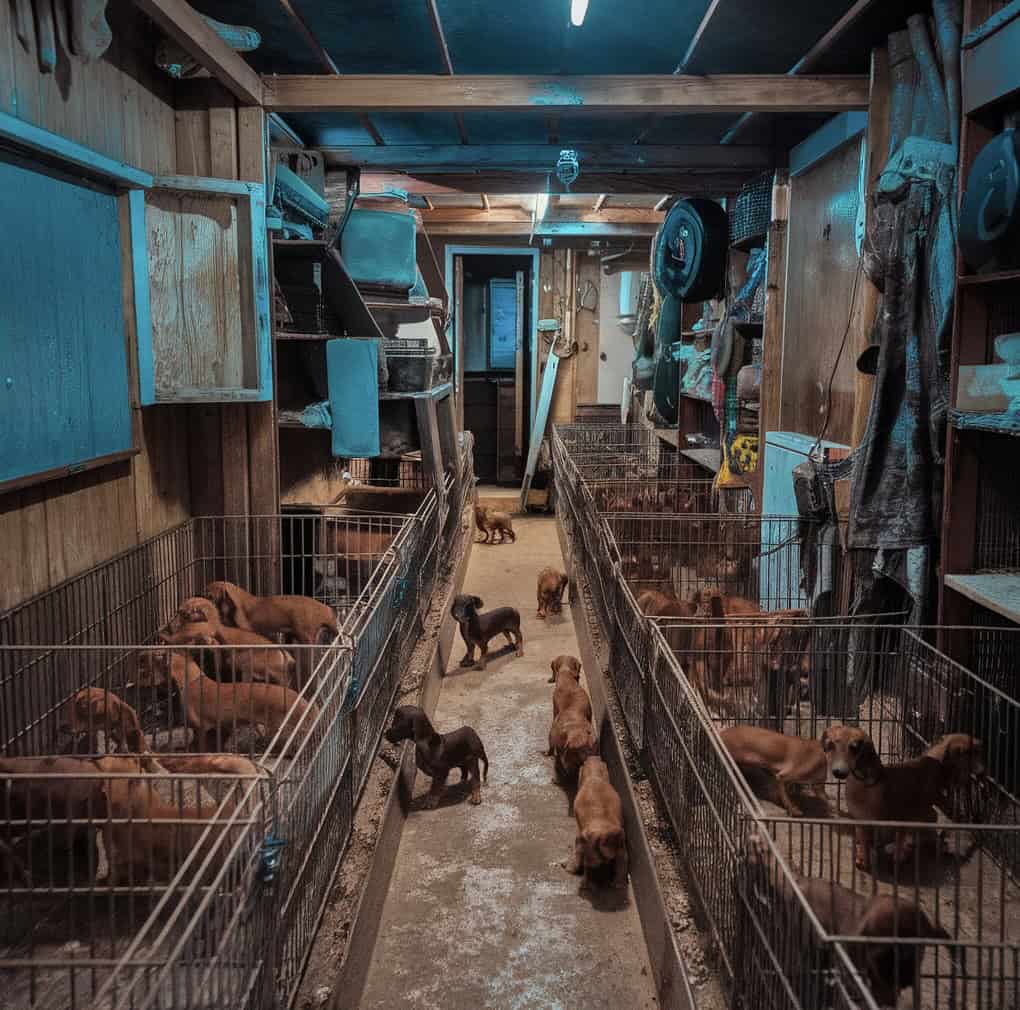
2️⃣ 📜 Lack of Health Documentation
🩺 No Vet Records
Another major red flag is the absence of veterinary documentation.
If a breeder can’t provide records showing that the puppy has received vaccinations and health checks, this should raise concerns.
These documents ensure the puppy has been properly cared for.
🧬 No Genetic Testing
Reputable breeders will perform genetic tests to check for common health issues in Dachshunds, such as intervertebral disc disease (IVDD).
If the breeder doesn’t offer proof of genetic testing, you might be buying a puppy with potential future health problems.
It’s worth asking for these records upfront.

3️⃣ 🐶 Puppies Seem Fearful or Overly Aggressive
😨 Shy or Fearful Behavior
A well-socialized Dachshund puppy should be curious and playful.
If the puppies seem overly shy, fearful, or avoid interaction, this could indicate poor socialization or neglect.
Early socialization is critical for a well-adjusted dog.
😡 Signs of Aggression
While puppies can be rambunctious, aggressive behavior, such as biting or growling excessively, is a red flag.
Aggression in young puppies might be a sign of poor breeding practices or mistreatment.
Look for puppies that are friendly and playful, not aggressive.

4️⃣ 💼 Breeder Has Little or No Experience
🤷♂️ No Breeding Knowledge
A breeder who lacks experience or knowledge about the breed should be a concern.
If they can’t answer basic questions about Dachshund health, behavior, or care, it’s a sign they’re not the right choice.
Good breeders are passionate about their dogs and eager to share their knowledge.
💰 Focused Only on Profit
Beware of breeders who seem more interested in your payment than in ensuring the puppy is a good fit for your home.
Reputable breeders will ask questions about your lifestyle and make sure you’re prepared for the responsibility.
If money is their main focus, it’s a red flag.

5️⃣ 🔄 Too Many Litters at Once
🏭 Puppy Mill Warning
If a breeder has multiple litters available at the same time, that could be a sign of a puppy mill.
Breeding too many puppies at once often leads to neglect and poor care.
Responsible breeders focus on quality, not quantity.
🚫 Limited Individual Attention
Puppies require plenty of individual attention, especially during their early weeks.
When there are too many puppies, it’s hard for a breeder to give each one the care and socialization they need.
This can lead to long-term behavioral issues.
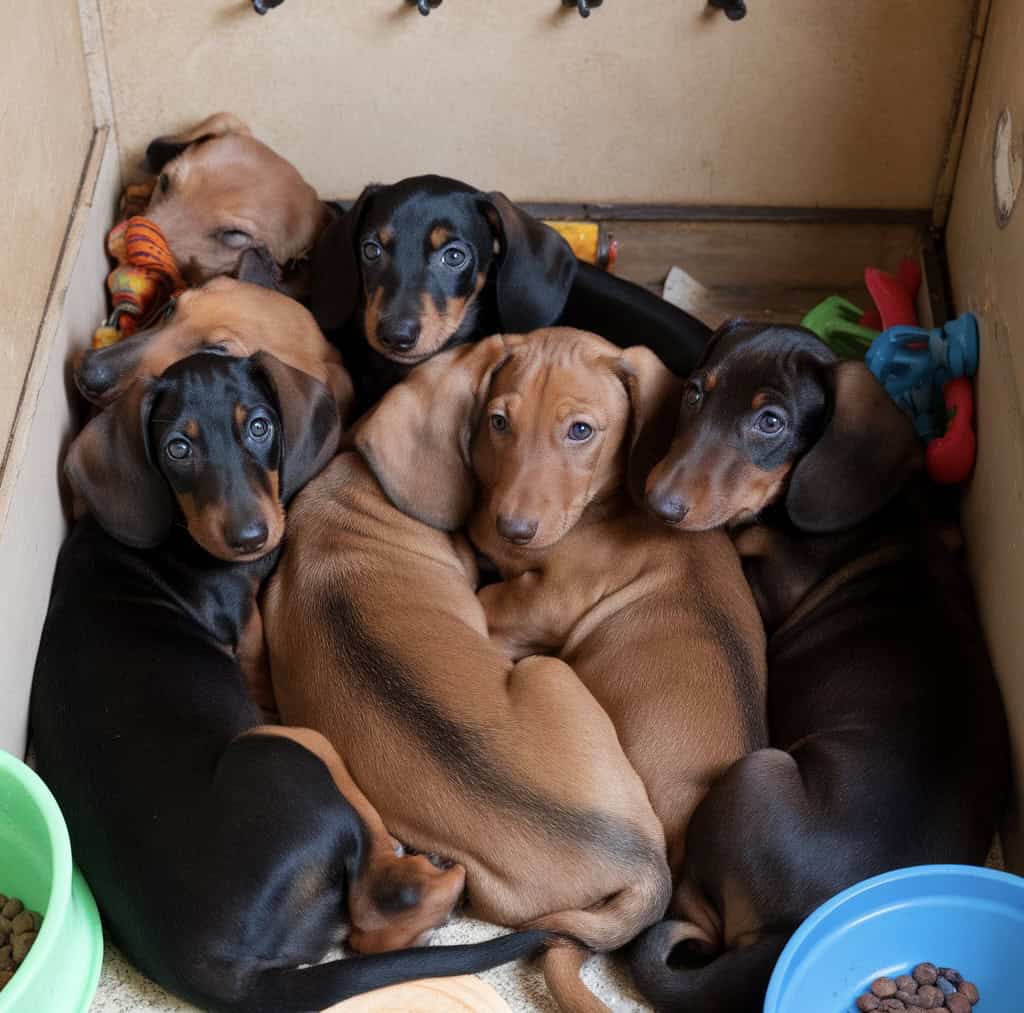
6️⃣ 🌐 Lack of References or Reviews
🙅♀️ No Testimonials
A reputable breeder should have positive reviews or references from previous buyers.
If they can’t provide any references, or if online reviews are negative or nonexistent, that’s a red flag.
Look for breeders who have a track record of happy, healthy puppies.
🚩 Complaints from Others
Do a quick online search to see if the breeder has any complaints filed against them.
Negative reviews, unresolved complaints, or reports of sick puppies are big warning signs.
Always do your homework before committing.
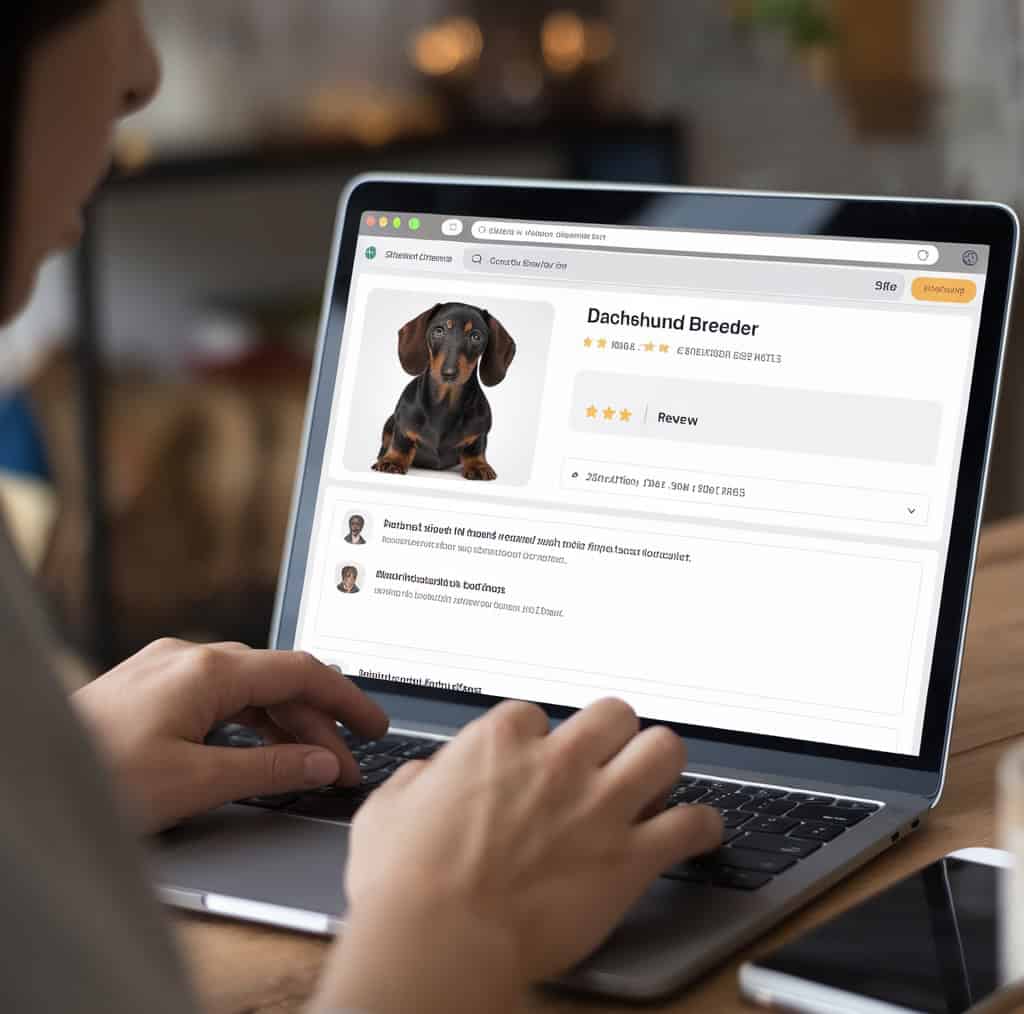
7️⃣ 🏃♂️ Pushing for a Quick Sale
💨 Rushing the Process
If the breeder is pressuring you to make a quick decision or trying to rush the sale, that’s a red flag.
Good breeders want to make sure their puppies are going to a good home and won’t push you into a hasty decision.
Buying a puppy is a long-term commitment and should not be rushed.
📆 Puppies Too Young to Leave
A reputable breeder won’t let you take a puppy home before they are at least 8 weeks old.
If the breeder is offering puppies younger than this, it’s a red flag.
Early separation from their mother can lead to health and behavioral issues.

8️⃣ 🧾 No Contract or Guarantees
📝 No Written Agreement
A responsible breeder will provide a contract that outlines the terms of the sale, health guarantees, and any breeder responsibilities.
If there’s no contract, or it’s very vague, proceed with caution.
Contracts protect both you and the breeder.
⚖️ No Return Policy
Reputable breeders offer a return policy, in case things don’t work out.
If the breeder has a “no returns” policy, it’s a red flag that they’re not committed to the well-being of the puppy.
Look for breeders who are willing to take responsibility for the puppies they sell.
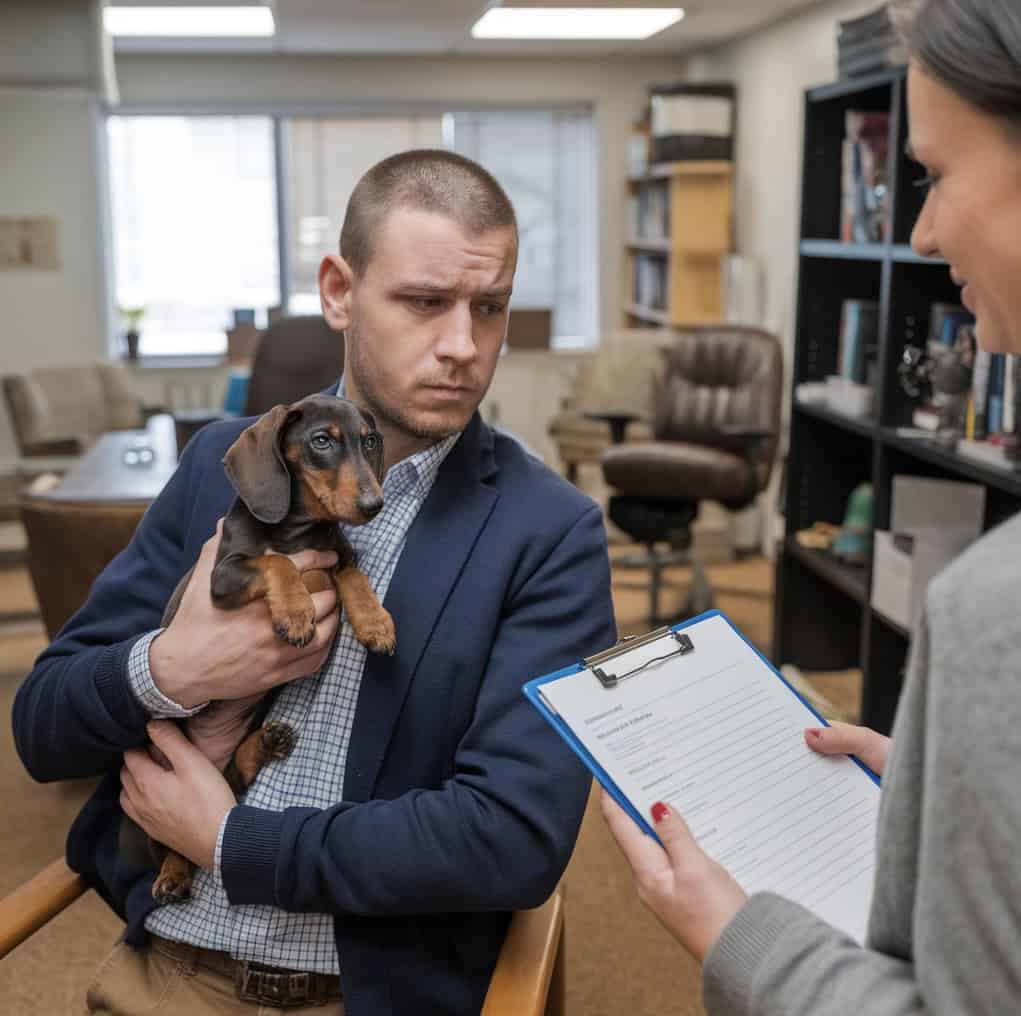
9️⃣ 🏥 Parents Not Available for Viewing
🐕🦺 Can’t See the Puppy’s Parents
It’s important to meet the puppy’s parents to assess their health and temperament.
If the breeder doesn’t allow you to see the parents, it could mean they’re hiding something.
Healthy, well-cared-for parent dogs are a good indicator of the quality of the puppies.
🧐 Parents in Poor Condition
Even if the parents are available for viewing, check their condition.
If they appear unhealthy, neglected, or have bad temperaments, that’s a red flag.
Healthy parents are more likely to produce healthy puppies.
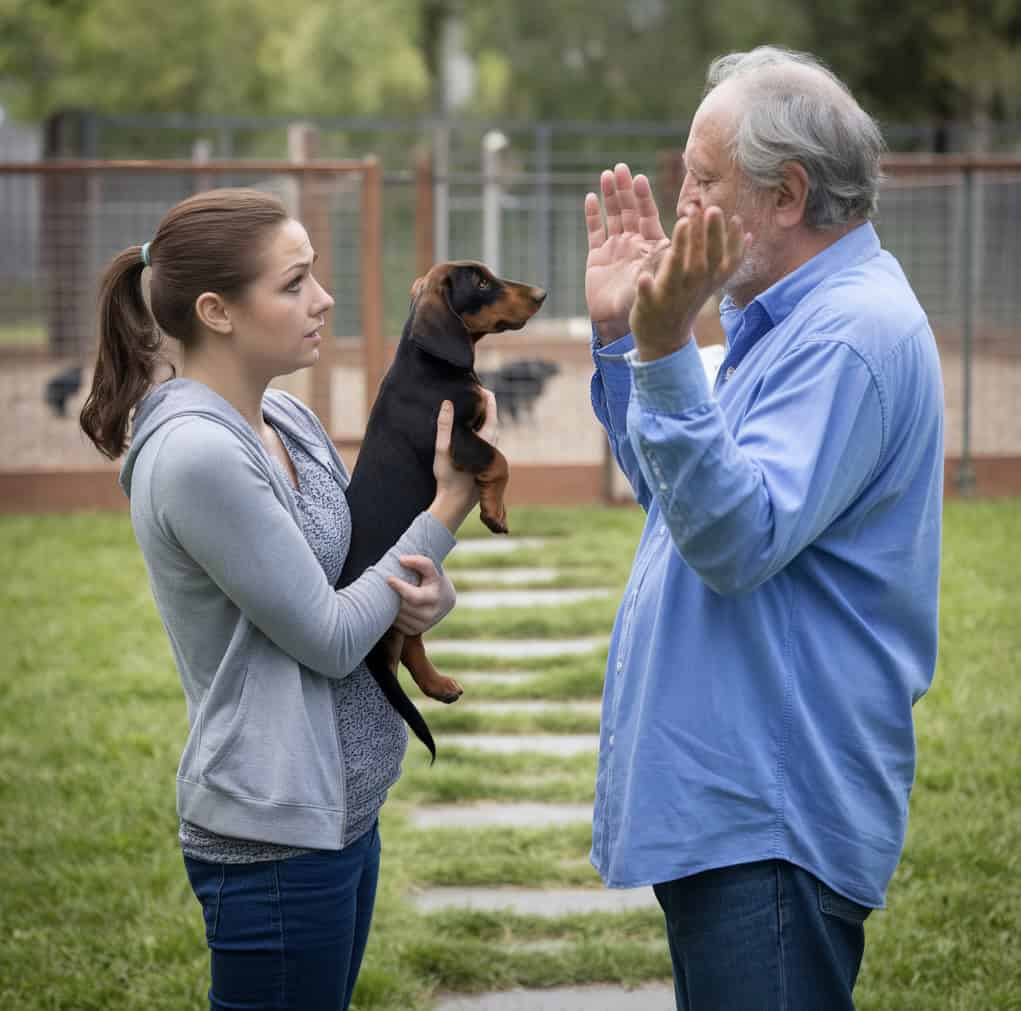
1️⃣0️⃣ 🚫 No Questions About You
🤷♀️ Lack of Interest in Your Home
Good breeders care about where their puppies go.
If the breeder doesn’t ask any questions about your home, lifestyle, or experience with dogs, they may not care about the puppy’s future well-being.
This is a big red flag.
🧐 Not Screening Buyers
Reputable breeders screen potential buyers to make sure they’re a good fit for the puppy.
If the breeder is willing to sell to anyone with no questions asked, they may not have the puppy’s best interest in mind.
A lack of screening is a red flag.

1️⃣1️⃣ 🛑 Puppies Appear Unhealthy
🤢 Signs of Illness
If the puppies show signs of illness, such as diarrhea, vomiting, lethargy, or runny noses, this is a serious red flag.
Healthy puppies should be energetic, alert, and have clear eyes and noses.
Sick puppies may require extensive vet care, and some illnesses can be lifelong.
😔 Poor Physical Condition
Check the puppies’ physical appearance carefully.
If they appear malnourished, have bald patches, or show signs of neglect, it’s a red flag that they haven’t been properly cared for.
Healthy puppies should have shiny coats, bright eyes, and healthy appetites.
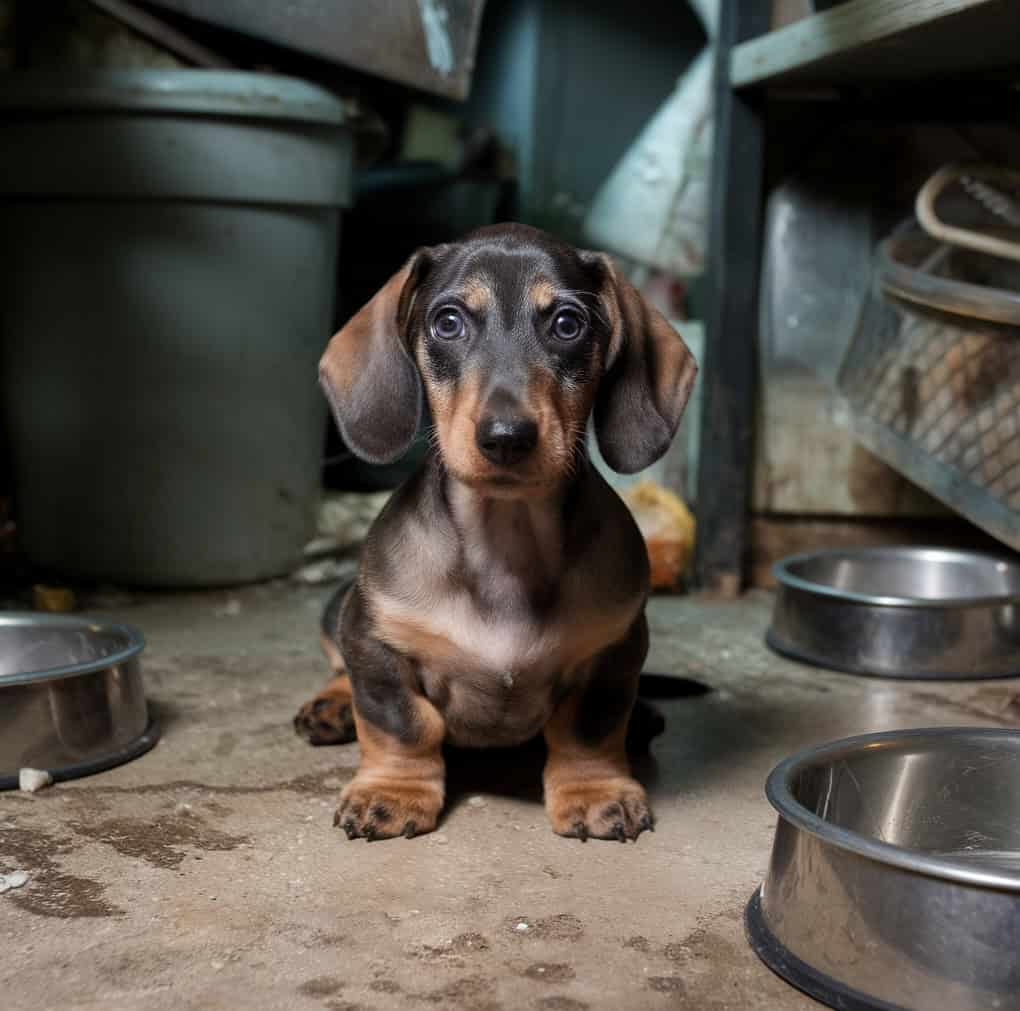
1️⃣2️⃣ 🚨 Suspiciously Low Prices
💵 Too Good to Be True
If the price of the puppy seems too good to be true, it probably is.
Reputable breeders charge fair prices based on the care, health, and quality of their puppies.
Suspiciously low prices could indicate poor breeding practices or health issues.
🧐 No Explanation for Low Cost
Ask the breeder why the puppy is priced lower than average.
If they can’t provide a reasonable explanation, it’s a red flag.
Cheaper doesn’t mean better when it comes to buying a puppy.

🔚 Conclusion: 12 Red Flags to Watch When Buying a Dachshund Puppy
Buying a Dachshund puppy is an exciting experience, but it’s important to stay vigilant for these red flags.
By taking the time to do your research and choosing a reputable breeder, you’ll be more likely to find a healthy, happy puppy.
Remember, a responsible breeder will always put the welfare of their puppies first.
For further information on finding a reputable breeder, check out these resources:
By following these guidelines, you’ll be well on your way to welcoming a loving Dachshund puppy into your home!
